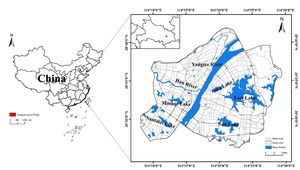U.S. President Donald Trump has triggered unprecedented economic tensions with his latest tariffs targeting Canada, Mexico, and China, emphasizing his administration's tough stance on illegal immigration and drug trafficking. The sweeping measures, announced on February 1, 2025, include 25 percent tariffs on exports from Canada and Mexico, as well as a new 10 percent tariff on goods from China.
This move could significantly disrupt supply chains and impact consumer prices, particularly for auto and agricultural products. The newly imposed tariffs come after Trump invoked the International Emergency Economic Powers Act, citing what the White House describes as "an extraordinary threat posed by illegal aliens and drugs, including deadly fentanyl."
Trade relations between the U.S. and its North American neighbors are deeply intertwined, with nearly $900 billion worth of goods traded annually. The automotive and energy sectors--both heavily reliant on cross-border supply lines--are predicted to face severe repercussions. According to analysts, as much as 40 percent of Canada’s exports to the U.S. come from the automotive sector alone. This heavy reliance makes the impact of tariff hikes particularly acute.
"Various parts cross the border multiple times before ending up as finished products," noted Robert Kavcic, economist at the Bank of Montreal. The tariffs will not only affect the automotive sector but also construction materials, as over 70 percent of softwood lumber and gypsum—key inputs for homebuilding—comes from Canada and Mexico.
Canada's Prime Minister Justin Trudeau has responded to the threats by promising retaliation, as his country prepares to impose 25 percent tariffs on U.S. imports valued at approximately $155 billion. Trudeau stated, "We're certainly not looking to escalate. But we will stand up for Canada, for Canadians, for Canadian jobs," indicating deep concerns over the stability of trade relations.
Similar sentiments were echoed by Mexican President Claudia Sheinbaum, who announced retaliatory tariffs following Trump's declaration. Sheinbaum ordered her economic minister to initiate "Plan B," which involves developing tariff measures to protect Mexico’s interests. Mexico exported around $510 billion worth of goods to the U.S. last year — equivalent to roughly 84 percent of its total exports.
The agricultural sector, which includes significant exports of avocados, tomatoes, and other vegetables and fruits, could also see prices rise sharply. The U.S. Department of Agriculture reported last year, over 80 percent of the country’s avocados are sourced from Mexico.
Trump has defended the tariff actions, asserting they are necessary to hold Canada and Mexico accountable for perceived failures to manage immigration and drug inflow. "Tariffs are a powerful leverage for protecting national interest," the White House remarked, hinting at broader ambitions for future tariffs--alerting markets to potential instability.
- U.S.-China Tariffs - Further complicates the scenario is the additional 10 percent tariff imposed on Chinese goods. China's commerce ministry has indicated it will retaliate against what it considers unfair trade practices. Despite growing tensions, experts caution against the potential fallout. Gregory Daco, chief economist at EY, warned of the risk of tipping both Canada and Mexico’s economies toward recession, with ripple effects for the U.S. as well.
The elevated trade tensions come amid sustained concerns about inflation and economic sluggishness within the United States. Analysts foresee rising import costs leading to dampened consumer spending and business investment. Daco mentioned, "The tariffs send clear messages, reinforcing Trump's America First stance, using trade as geopolitical tools."
Wendy Cutler, former U.S. trade negotiator, described the tariffs as "an opening salvo on the tariff front," warning of serious repercussions for all three nations involved. "Economic integration means stiff tariffs will have strong and immediate impacts on trade partners," she added.
The current trade tensions pose challenges, especially for the automotive and agricultural industries, where interdependency is significant. Doug Ford, the Premier of Ontario, expressed concerns over potential job losses within his province, stating, "We're going to stand up for what's right."
The political ramifications are already apparent, with U.S. Senate Minority Leader Chuck Schumer cautioning about the burden of new tariffs on American consumers. Higher costs could surface throughout various sectors as the repercussions of the tariffs begin to materialize. The expectation is also set for inflation to rise—an impact difficult to overlook as consumers start to feel the pinch of these new trade measures.
With tensions continuing to escalate, economists and observers across North America are watching closely, considering whether diplomacy will ease the situation or if more aggressive stances will exacerbate the conflict. The coming weeks will likely reveal how these tariffs will influence the broader economic landscapes of Canada, Mexico, and the United States.



